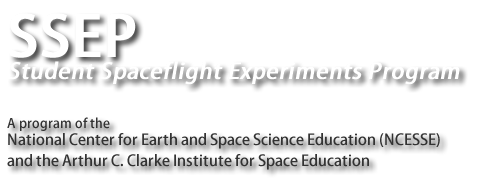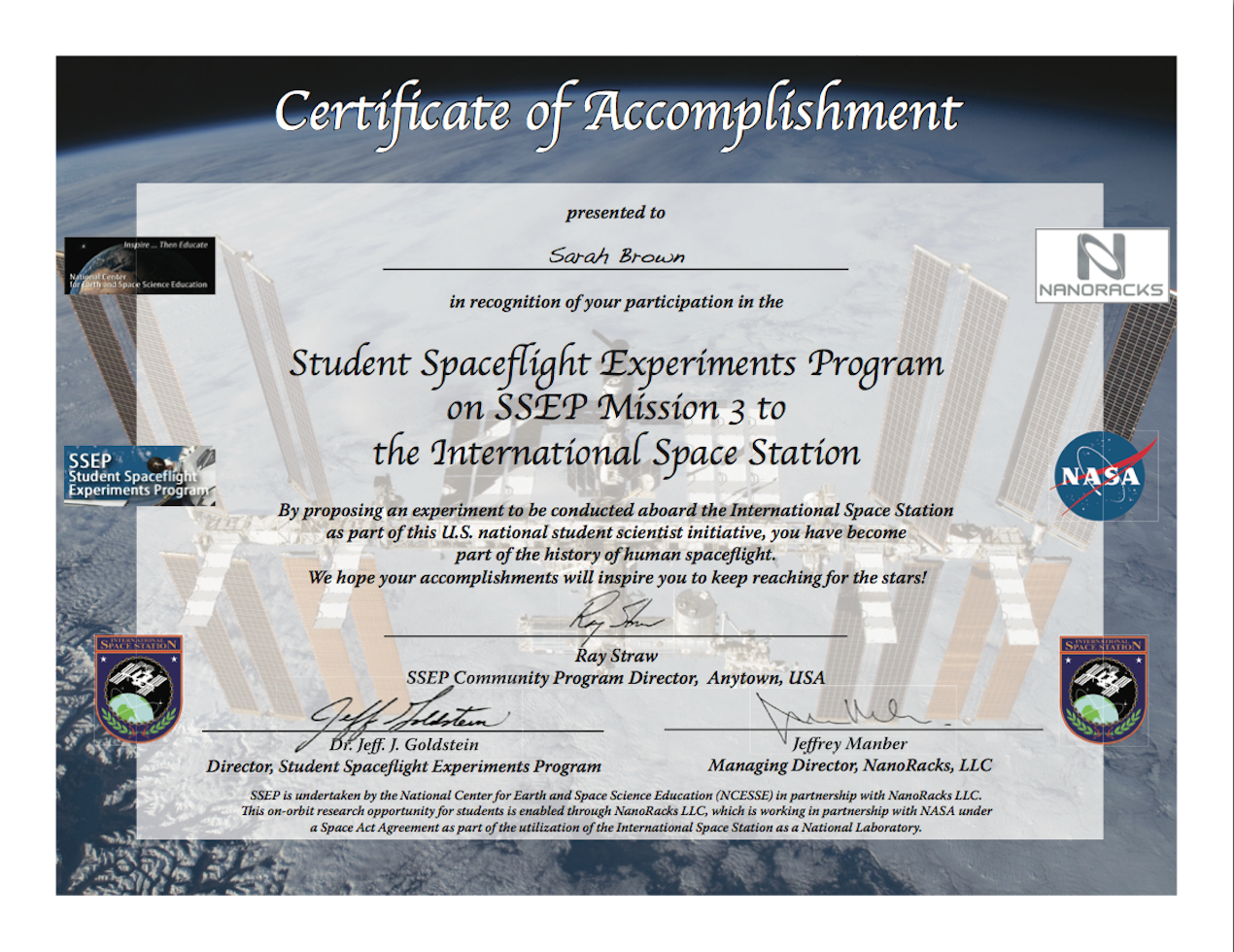The goal of the Student Spaceflight Experiments Program (SSEP) is to inspire America’s next generation of scientists and engineers, and engage entire communities in the process. In this vein, we believe that it is vitally important that participating students have a lasting recognition of their involvement in America’s Space Program and their role as researchers in real microgravity experiment design, or in public communication through mission patch design. We want them to remember always their part in this program.
Rabbi Ari Ginian is the SSEP Community Program Director for Inwood New York, and they had participated in SSEP on the final flight of Space Shuttle Atlantis (STS-135). He suggested in 2011 that the National Center for Earth and Space Science Education make available a Student Certificate template to SSEP communities in recognition of student achievement. He also asked if the NASA logo could be included, even though SSEP was a commercial space venture. It was a wonderful idea. We asked NASA Headquarters if that would be possible and they graciously granted the needed permission. We are grateful to NASA for its stunning support of this program since it began in June 2010.
The Center is therefore proud to make SSEP Student Certificates of Accomplishment available to all the Mission 3 to ISS participating communities.
Maybe one day, 20 years from now, a Principal Investigator on a spacecraft mission to Jupiter’s Moon Europa in search of life, will look up at her wall of diplomas and see a cherished SSEP Certificate. With a smile breaking across her face, she’ll remember the program that launched her grand adventure.
About the Certificates
The certificates are provided to the communities as a PDF file that contains five different types of certificate to ensure we reach all students. Certificates provided:
- general participation in the experiment design competition
- a member of a finalist experiment proposal team
- a member of a selected flight experiment team
- general participation in the mission patch design competition
- a member of the winning mission patch design team
The certificates are ready to be printed, signed by a community leader, and given to the students that have participated in the program. The certificates include imagery, logos, and ISS insignia, as well as electronic signatures for Dr. Jeff Goldstein, SSEP Director, and Jeffrey Manber, Managing Director of NanoRacks, LLC.
The certificates are designed so that they can be customized to each community by including the name of the community and name of the community leader who will sign the certificates. The community leader may also provide an electronic signature to be incorporated in the certificate.
An Important Note: NCESSE can only make certificate masters available to the SSEP Community Directors and Co-Directors in a community, or to some other designated community leader. We have already sent word out to the Directors and Co-Directors for Mission 3 to ISS on how they can obtain certificate masters for their community.
SSEP is undertaken by the National Center for Earth and Space Science Education (NCESSE) in strategic partnership with NanoRacks LLC. This on-orbit, realresearch opportunity for students is enabled throughNanoRacks LLC, which is working in partnership with NASA under a Space Act Agreement as part of the utilization of the International Space Station as a National Laboratory.


Comments are closed.